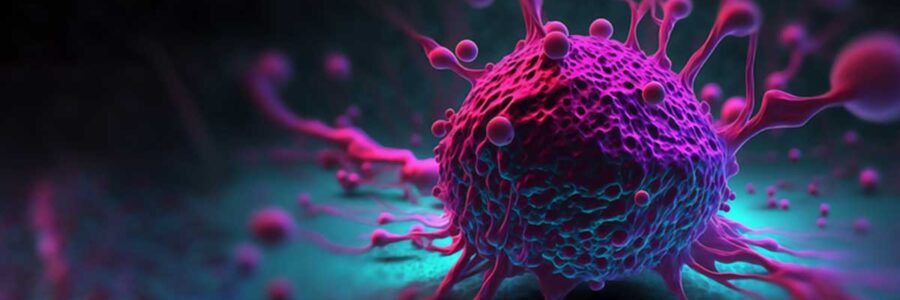Cancer and Poor Diet: New Cancer Diagnoses Every Year It’s no surprise to anyone involved in the ‘alternative healthcare’ scene that diet influences health, but a new study is finally starting to connect the dots between diet and health in mainstream science.
Cancer and Poor Diet
Prestigious JNCI Cancer Spectrum journal published a study last week that estimated that 80,110 of new cancer cases among adults 20 and older in the United States in 2015 were caused by eating a bad diet.
These numbers are equivalent to approximately 5.2% of all newly diagnosed invasive cancer cases among US adults that year, which is equal to the cancer burden attributed to alcohol.
The study used two separate studies to correlate the final numbers, including the National Health and Nutrition Examination Survey (which included data on dietary habits of American adults between 2013 and 2016) as well as the information on national cancer incidence in 2015 provided by the US Centers for Disease Control and Prevention.
The factors correlated most heavily with the most significant cancer burden in the US, according to their findings, were:
- High processed-meat intake
- Little vegetable and fruit intake
- High red meat intake
- High intake of sugar-sweetened beverages
Those estimations were made using cancer and poor diet associations found in separate studies. These studies are not causational but more observational. One problem with such studies is that the quality of products, for example, is not taken into account. So, a grass-fed, pasture-raised burger is considered the same ‘red meat’ as a patty from McDonald’s. Grass-fed beef isn’t the same. Grass-fed beef from the farm has a completely different nutritional profile from that of factory-farmed meats mixed with fillers.
The Culprit: Processed Foods
We are at the start of a new chapter in which the links between cancer and poor diet are starting to be studied more directly. Dr. Zhang (one of the lead researchers from the original study) wrote that “diet is among the few modifiable risk factors for cancer prevention.” Indeed, diet is one of the key factors within our control. Your diet is one way to help you take back your power and reclaim their health. He continues, “these findings underscore the need for reducing cancer burden and disparities in the US by improving the intake of key food groups and nutrients.”
Highly processed food-like-products have taken over the diets of a majority of the developed world. A 2016 study claims 60% of the American diet is comprised of highly processed foods. A 2017 study found that 50% Canadian diet is highly processed, and about the same amount in the UK diet. With cancer and other diseases on the rise, we must address this problem urgently.
The Solution: Go Organic
Individuals who opt for organic foods lower their overall risk of developing cancer, according to a study published last year in the medical journal JAMA Internal Medicine. These findings are no surprise because organic foods are less likely to contain contamination from cancer-causing herbicides and pesticides like glyphosate. Chemicals in our ground and tap water can also contaminate our crops. However, going organic is the best chance you have at minimizing your exposure.
The Solution: Heal Your Gut and Support Body to Detox Properly
Cancer and poor diet go hand in hand, so why do we keep making these choices? We often attribute cravings to processed foods to mouth pleasure or convenience. However, the reality is that our state of health plays a massive role in what our body craves for energy. If our hormones are out of balance and our gut is filled with sugar-craving microbes, we reach for simple sugars and caffeine to prop us up in our day-to-day life.
Once processed foods, sugars, and grains are eliminated, our health and diet will change dramatically. The foods we crave and reach for will be what the body needs to thrive.
Speaking of Thriving…
When it comes to eating healthy, one of the barriers is sometimes budget or the excuse, “healthy food is expensive.” But that’s what makes Thrive Market such a game-changer. They include guaranteed savings. Enjoy member-only prices—up to 25-50% off traditional retail prices. Also get free gifts, samples, and deals every day.
Thrive offers the highest quality healthy & sustainable products Buy thousands of wholesome food, home, and beauty products curated just for members. Find everything you need: organic & non-GMO food, clean beauty, safe supplements, and nontoxic home—plus ethical meat, sustainable seafood, clean wine, and more. Tailored to your diet or preferences — they have them all!
Thrive Market is an online specialty grocery store that busy, health enthusiasts love. Easily shop by 70+ diets and values like keto, paleo, gluten-free, vegan, non-GMO, fair trade certified, BPA-free, and more. Get the app and skip the store—and the lines.
Orders $49+ are shipped free. Delivered with fast, carbon-neutral shipping from their zero-waste warehouses.
References:
- Correa, Pelayo. “Diet and Gastric Cancer.” Diet, Nutrition, and Cancer: A Critical Evaluation, 2018, 1–10. https://doi.org/10.1201/9781351071406-1.
- Klasing, K. C. “Micronutrient Supply: Influence on Gut Health and Immunity.” Avian Gut Function in Health and Disease, n.d., 210–23. https://doi.org/10.1079/9781845931803.0210.
- Kono, Suminori, Masato Ikeda, Shinkan Tokudome, and Masanori Kuratsune. “A Case-Control Study of Gastric Cancer and Diet in Northern Kyushu, Japan.” Japanese Journal of Cancer Research79, no. 10 (1988): 1067–74. https://doi.org/10.1111/j.1349-7006.1988.tb01528.x.
- Steele, Eurídice Martínez, Larissa Galastri Baraldi, Maria Laura Da Costa Louzada, Jean-Claude Moubarac, Dariush Mozaffarian, and Carlos Augusto Monteiro. “Ultra-Processed Foods and Added Sugars in the US Diet: Evidence from a Nationally Representative Cross-Sectional Study.” BMJ Open6, no. 3 (2016). https://doi.org/10.1136/bmjopen-2015-009892.
- “Ultra-Processed Foods in Canada: Consumption, Impact on …” Accessed November 2, 2019. https://www.heartandstroke.ca/-/media/pdf-files/canada/media-centre/hs-report-upp-moubarac-dec-5-2017.ashx.
- Yuan, Xianling, Zihong Pan, Cuiyuan Jin, Yinhua Ni, Zhengwei Fu, and Yuanxiang Jin. “Gut Microbiota: An Underestimated and Unintended Recipient for Pesticide-Induced Toxicity.” Chemosphere227 (2019): 425–34. https://doi.org/10.1016/j.chemosphere.2019.04.088.
- Zhang, Fang Fang, Frederick Cudhea, Zhilei Shan, Dominique S Michaud, Fumiaki Imamura, Heesun Eom, Mengyuan Ruan, et al. “Preventable Cancer Burden Associated With Poor Diet in


